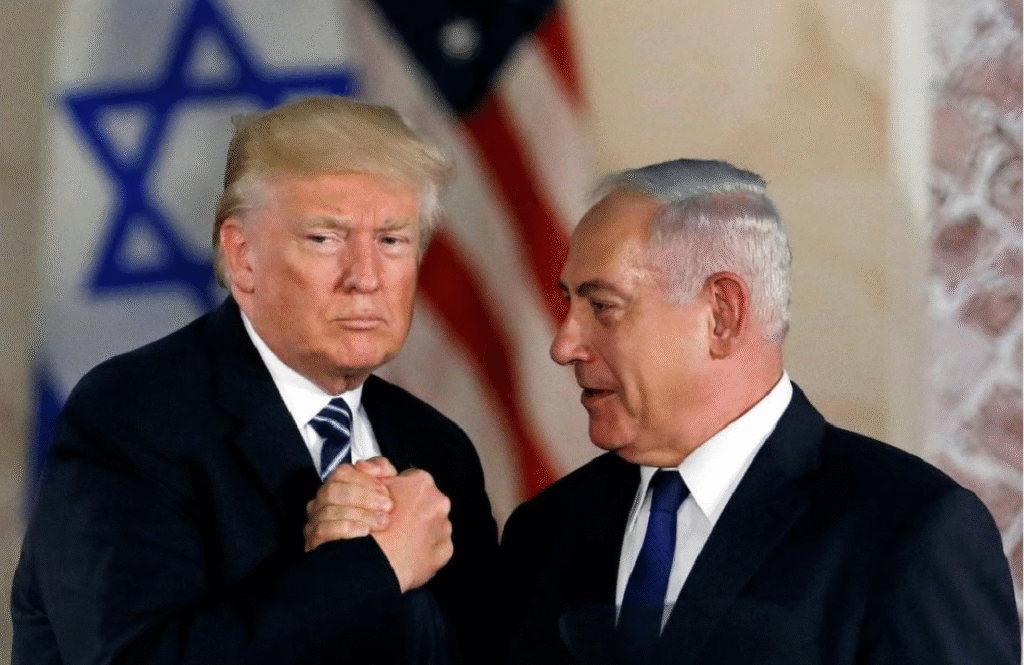the US ‘gained nothing’ from its bombings.
Iran’s supreme leader, Ayatollah Ali Khamenei, stated that Donald Trump «exaggerated» the impact of U.S. attacks on Iranian nuclear facilities, in his first public statement since a ceasefire went into effect last Tuesday. In a triumphant tone, the Iranian supreme leader celebrated his country’s «victory» over Israel and asserted that the United States «gained nothing» from its bombings.
Conversations between both countries have continued, despite last weekend’s attack by the United States on three Iranian nuclear facilities.
The proposed measures aim to resume diplomatic dialogue and reduce tension in the Middle East.
The ayatollah also stated that they had dealt a «stunning blow» to the United States and that Israel «almost collapsed» due to the attacks launched from Tehran.

The United States was directly involved in the offensive launched on June 13 by Israel against Iran with a bombing of three key centers of Tehran’s atomic program in Fordo, Natanz, and Isfahan.
With the fragile ceasefire between Iran and Israel entering its third day after 12 days of war, and while waiting for the resumption of talks between Tehran and Washington over Iran’s nuclear program, attention is focused on the effectiveness of that action. Khamenei also indicated that President Trump «exaggerated events» and threatened to bomb other US bases in the Middle East if Washington attacks Iran again.
«It is too early to assess the damage» from Israeli bombings.
Trump claims that the bombed Iranian facilities were «totally destroyed,» but Israel and the International Atomic Energy Agency (IAEA) believe it is still too early to assess the damage.
However, a classified U.S. document published by CNN concludes that the attack did not destroy key components of the Iranian nuclear program, the development of which would have been delayed by a few months and not decades, as Trump stated.
Another question raised by experts is whether Iran was able to evacuate some of its 400 kilograms of highly enriched uranium reserves before the attack and hide them somewhere in its vast territory. Also read: Iran, ready to resume its nuclear program; it will restart uranium enrichment after ceasefire with Israel Furious over the controversy, Trump announced that Defense Secretary Pete Hegseth will appear at 08:00 (12:00 GMT) to «fight for the dignity of great American pilots.
» The White House acknowledged that the document released by CNN is genuine, but «totally wrong.»
Iranian facilities were left «buried under kilometers and kilometers of debris,» said its spokeswoman Karoline Leavitt to Fox News. John Ratcliffe, the director of the CIA, stated in a statement that, based on «credible information,» the nuclear program has been «severely damaged by recent attacks.»

Before the conflict, Iran was enriching uranium to 60%, nearing the 90% level necessary to manufacture a nuclear weapon. Photo: AP
Iran was on the verge of obtaining the atomic weapon, according to Israel.
Israel justified its attack against Iran by claiming that the Islamic Republic was on the verge of obtaining atomic weapons. Tehran denies having this ambition but defends its right to develop a nuclear program for civilian purposes.
Before the American intervention, Israel had launched hundreds of attacks against these facilities and had assassinated some of the scientists in charge of this controversial program.

The Israeli army deemed that the war dealt a «hard blow» to Iran’s atomic development, but noted that it is «still too early to assess the results of the operation,» stated its spokesman Effie Defrin. Also read: Fordow, Natanz, and Isfahan are Iran’s nuclear facilities; here are the keys to understanding Trump’s attack. In the same vein, the IAEA, a UN agency, considers it impossible to calculate the damage and requested access to the three sites. The UN agency «lost visibility» over the enriched uranium reserves «since hostilities began,» said its director general, the Argentine Rafael Grossi. Despite Western pressures and direct threats from the United States and Israel, before the conflict, Iran was enriching uranium at 60%, approaching the 90% level needed to manufacture a nuclear weapon. Also read: Countries would be willing to supply Iran with their nuclear weapons.

A satellite image provided by Maxar Technologies shows the damage at the Isfahan nuclear technology center after the U.S. airstrikes, in Isfahan, Iran, on June 22, 2025. Credit: EFE/EPA/MAXAR TECHNOLOGIES
«Considerably damaged,» the nuclear facilities, admits Iranian spokesman.
In an interview with Al Jazeera, the Iranian diplomacy spokesman, Esmail Baqai, acknowledged that «the nuclear facilities have been considerably damaged.» The Iranian nuclear program was the subject of several rounds of negotiations between the United States and Iran, which began in April under the mediation of Oman, but were interrupted by the Israeli offensive. In statements on Wednesday at the end of a NATO summit in The Hague, Trump stated that they will «talk with Iran next week.» «We could sign an agreement, I don’t know yet,» the American president assured.
His envoy to the Middle East and leader of the delegation that negotiated with Iran, Steve Witkoff, expressed on CNBC his «hope of reaching a global peace agreement.» «We have conversations with the Iranians, multiple interlocutors are contacting us and I believe they are ready,» he stated. Trump also considered that the ceasefire is «working very well» and estimated that both Israel and Iran are «tired, exhausted» from the conflict.
According to the latest official report, the Israeli campaign killed 627 civilians in Iran and injured more than four thousand 870. The missiles and drones launched by Tehran in response killed 28 people in Israel, according to the authorities.